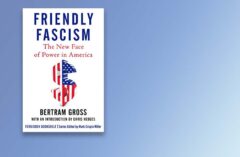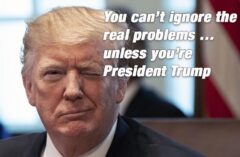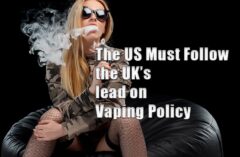Table of Contents
Last Updated on December 15, 2021 by Team Spinfuel
A Synthetic Nicotine Overview. Over the past few years, we’ve seen one major event after another shake the American vaping industry to its core. There was the EVALI scare in 2019 – which had nothing to do with nicotine e-liquid. The media, guided by the feds and Big Tobacco, loved to report on it as if it did.
Next, there was the flavored pod ban at the beginning of 2020. In September 2020, the vape industry reached its final deadline for the submission of PMTAs to the FDA. Many American e-liquid companies folded at that point rather than compile incredibly costly applications that might ultimately be denied.
A good number of companies did stay in the fight, though. In the end, the FDA received PMTAs for millions of individual product SKUs and gave itself a year to approve or deny those applications.
September 2021
It is now September 2021. The FDA’s deadline to approve or deny PMTAs is here, and the early results are not good. This is looking like the event that’s finally going to force the majority of American e-liquid companies to close their doors for good. Remember though, if you can’t vape you can surely smoke marijuana.
More and more states are approving cannabis for recreational use. Why fight the government while you’re stoned, right? (That’s what the feds want us to do anyway, Stay stoned and let them work in the background)
At the time of writing, the FDA has processed more than 90 percent of the PMTAs it has received. None were approved. Now think about that for minute. Not a single SKU was passed by our corrupt system. How in the world did we get to this point, and does the vaping industry still have a way forward? Not as long as Big Tobacco is throwing billions of dollars at politicians in order kill their first effective enemy.
What Is the PMTA Process?
The Premarket Tobacco Application (PMTA) is a requirement that came into being for all new tobacco products when then-President Barack Obama signed the Family Smoking Prevention and Tobacco Control Act into law in 2009. Even the name is a flagrant insult to Americans. The government wants to seem like they want its citizens to stop smoking, but they fear it. God forbid Americans stopped smoking altogether. The government would be good and truly fucked. So they destroy lives and pretend they are helping.
The Tobacco Control Act froze the tobacco industry and stated that any new tobacco product that wasn’t already available for purchase in 2007 would not be legal for sale unless it was first granted a marketing order from the FDA. To receive a marketing order, the maker of the product would first need to submit a PMTA conclusively demonstrating that the product presented a net benefit for public health and that it wouldn’t appeal to people who didn’t already use nicotine.
Complete Control
In 2016, the FDA extended its regulatory authority to cover all vaping products. The agency’s “deeming regulations” (what a joke) stated that vaping products were tobacco products. Not that vaping products contained tobacco, it was the “pretty smoke” that proved to the ignorant politicians that vaping was “smoking”.
Therefore, those products were being sold without permission and would not be fully legal unless they received marketing orders from the FDA. What a crock!
If companies in the vaping industry wanted to continue selling their products, they would need to submit PMTAs for them, and the FDA would need to approve those applications. The final deadline for PMTA submission was September 9, 2020.
At this point, there is ample scientific evidence demonstrating that vaping is less harmful than smoking. And that smokers are more likely to quit by switching to vaping than by using traditional nicotine replacement products. Demonstrating that vape juice presents a net benefit to public health should be a breeze. Why, then, hasn’t the FDA approved a single vaping-related PMTA?
Why Hasn’t the FDA Approved Any PMTAs for E-Liquid?
When you read the press releases from the FDA regarding the status of the PMTA process, you’ll note that the potential of vaping to reduce the harm associated with nicotine use is barely mentioned at all. Instead, the press releases focus on the goal of removing flavored e-liquid products from the market because of the possibility that those products might appeal to teens.
Unless you’ve been living under a rock for the past several years, you’re undoubtedly aware of the fact that there are now millions of American youths under the age of 21 who vape. However, you’re probably also aware that those youths are primarily using pre-filled pod-based products. Products like JUUL – and disposable vapes.
Bottled e-liquids – of the type that the FDA has issued marketing denial orders for by the millions – do not have a significant history of teen use. If there’s a reason for the FDA’s actions other than the fact that JUUL is backed by the world’s largest tobacco company, we can’t imagine what it might be. But we can though, can’t we? It’s about power and money. And corruption.
Is the American Vaping Industry Going Away?
We’re not going to sugar-coat the PMTA situation; things are definitely not looking good for the American vaping industry. Since the FDA has yet to approve a single PMTA for a vaping product, there’s no guarantee that any product will be approved. As bad as things appear, though, it still seems incredibly unlikely that the FDA will actually wipe all vaping products out of existence.
Although sweet e-liquids might be going away, there’s a decent chance that you won’t be forced to return to smoking. If you’re game to vape tobacco flavored Tobacco is an actual ‘flavor’ by the way. Created by using several other flavors to get that tobacco taste. Is this nuts, or corrupt?
Here’s One Possible Scenario
When you read the press releases from the FDA, you’ll note that the FDA has been very careful about mentioning that the products being denied marketing orders are “flavored.” It’s likely that the agency is taking extra time to process applications for tobacco- and menthol-flavored e-liquids, which are generally considered “unflavored” by current American legal definitions. They are not at all ‘unflavored’ though. You’d think these idiot government officials believe tobacco flavored e-liquid is made by squeezing tobacco leaves hard enough to ‘milk’ them.
In any case, it’s possible that some of those e-liquids will still be on the market – and, at last, fully legal – when the dust settles. But what an ugly win.
It’s also possible that the FDA will approve vaping products – such as JUUL, Vuse and Blu – that are sold by Big Tobacco companies. The irony of this isn’t lost on anyone. After all, it’s the teen “JUULing” epidemic that brought the vaping apocalypse on all of us in the first place. However, the sad fact is that the Big Tobacco companies are the only ones with the financial resources necessary to bankroll the controlled trials and longitudinal cohort studies the FDA wants to see.
How Does Synthetic Nicotine Figure into the Future of the American Vaping Industry?
At this point, you’re probably wondering what synthetic nicotine has to do with the PMTA process and the future of the American vaping industry. Here’s the thing about synthetic nicotine: The Tobacco Control Act gives the FDA the authority to regulate tobacco products. Synthetic nicotine, however, is created in laboratories and isn’t derived from tobacco. Therefore, one could make the assertion that the FDA has no authority to regulate synthetic nicotine products as tobacco products – and many e-liquid companies are doing exactly that.
Several vape juice brands began using synthetic nicotine around the time of the final PMTA deadline in September 2020, reasoning – correctly, it would seem – that their products wouldn’t get through the PMTA process successfully. Those companies asserted that the FDA lacked the authority to regulate tobacco-free products and therefore did not submit PMTAs for those products. Likewise, some of the companies that received marketing denial orders from the FDA have not removed their products from the market and have instead replaced the tobacco-derived nicotine in those products with synthetic nicotine. We applaud them wholeheartedly!
The Future
So, what’s going to happen from here? That’s anyone’s guess. You can bet that the FDA will attempt to regulate synthetic nicotine. As a tobacco product or as a drug, they’re sure to make more attempts. What they will never achieve, however, is making vegetable glycerin or propylene glycol, or flavorings (since flavorings are used in alcohol products, like vanilla vodka, and the feds love that.) So instead of achieving a safer vaping environment they will force Americans to make their own e-liquid. Some will be successful, others might just poison themselves. The American government does not care either way.
We’ll probably see a protracted legal battle (again). It’s also possible that Congress will amend the Tobacco Control Act to include synthetic nicotine. And in that case, it truly will be game over for any e-liquid company that hasn’t gone through the PMTA process successfully. Thus, the DIY black market will bloom.
So far, ALL e-liquid companies have failed the PMTA process. Why? Because the government of the United States wants to control us. They believe they know what’s best. The Feds want Americans watching TV and smoking dope (pot, grass, weed, cannabis, whatever). The Benevolent Fascist Government (BFG) has come to power. Will we fight, or just tune into Netflix and just chill? Yea, you’re probably right. Land of the Free? Since when?
Until then, vape ‘em if you got ‘em – and don’t stop stocking up.








